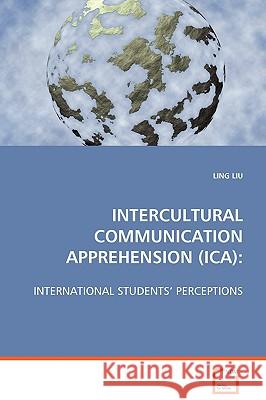Intercultural Communication Apprehension (Ica) » książka
Intercultural Communication Apprehension (Ica)
ISBN-13: 9783639073980 / Angielski / Miękka / 2008 / 96 str.
Conspicuously, the world becomes a global village. More and more students and professions study and/or work abroad. For more effective intercultural communication, it is necessary for us to pay attention to both the study and experience of intercultural communication apprehension (ICA). This research investigates international students perceptions of ICA. The research is conducted from an interpretive paradigm by engaging in the methodology of autoethnography and long interviews. By autoethnography, the researcher constructs a portrait of herself and looks critically at her own experiences of CA and ICA. By deeply analyzing international students experiences and understandings of CA and ICA, this research reveals the relationships between ICA and language, ICA and situational conditions, as well as ICA and culture. For reducing ICA, three types of strategies are suggested "
Conspicuously, the world becomes a global village. More and more students and professions study and/or work abroad. For more effective intercultural communication, it is necessary for us to pay attention to both the study and experience of intercultural communication apprehension (ICA). This research investigates international students’ perceptions of ICA. The research is conducted from an interpretive paradigm by engaging in the methodology of autoethnography and long interviews. By autoethnography, the researcher constructs a portrait of herself and looks critically at her own experiences of CA and ICA. By deeply analyzing international students’ experiences and understandings of CA and ICA, this research reveals the relationships between ICA and language, ICA and situational conditions, as well as ICA and culture. For reducing ICA, three types of strategies are suggested…











